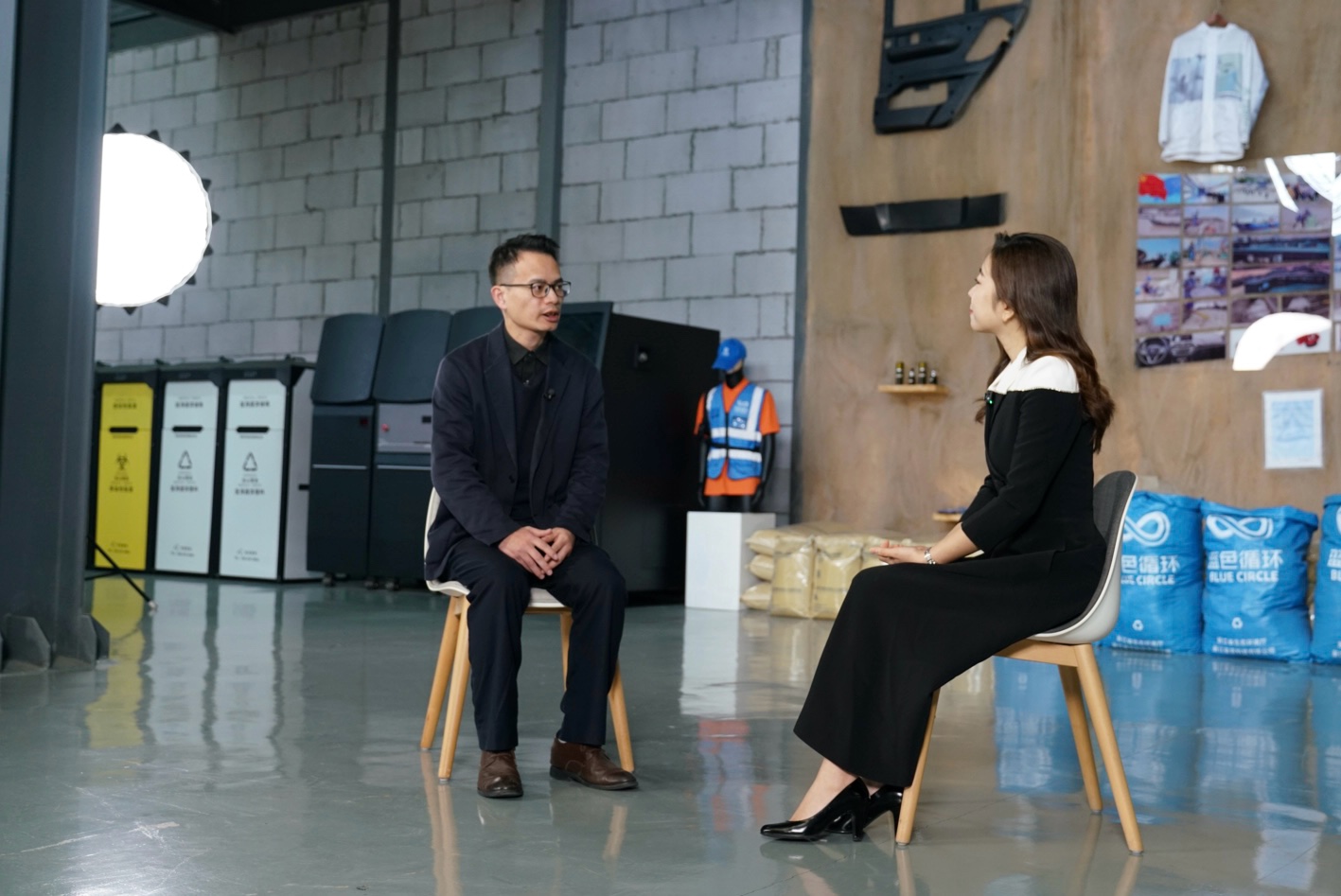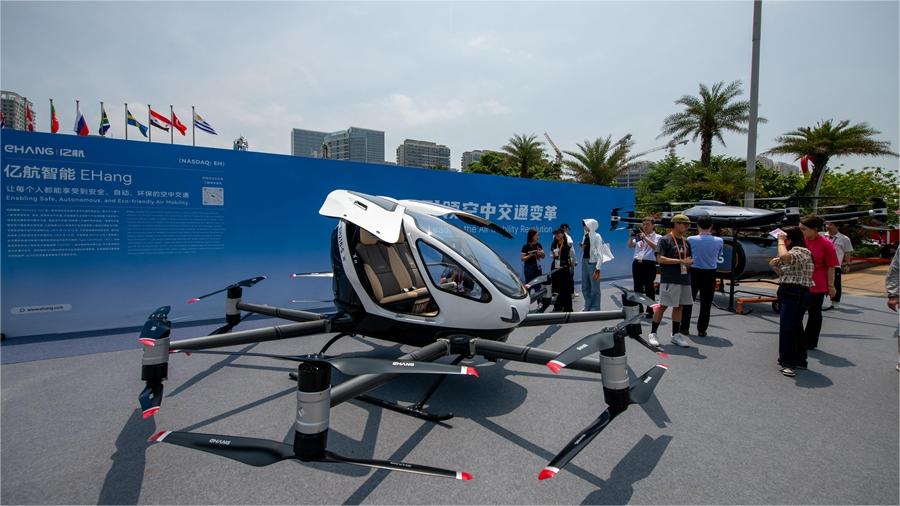Blue Circle: A pioneer in marine waste management for carbon neutrality
The ocean, the planet's largest carbon sink, with its boundless beauty and generosity, gifts humanity with invaluable treasures and life-sustaining resources. However, the devastating impact of pollution continues to tarnish its splendor, endangering its vitality and the many ecosystems it supports.
China's Blue Circle environmental initiative, which won the 2023 Champions of the Earth Award, the UN's most prestigious environmental recognition, is emerging as a global pioneer in marine ecological governance, spearheading a green low-carbon system that is revolutionizing the fight against ocean pollution.

Mao Xianhua, technical expert at Zhejiang Lanjing Technology, receives an exclusive interview with People's Daily Online. (People's Daily Online/Huangfu Wanli)
A multi-faceted approach to marine sustainability
The Blue Circle isn't merely an initiative; it's a multifaceted solution. According to Mao Xianhua, technical expert at Zhejiang Lanjing Technology (VisionBlue Technology), the Blue Circle takes a three-pronged approach - addressing pollution reduction, carbon capture enhancement, and digital technology integration - to tackling the challenges of marine pollution and carbon neutrality.
Data shows that after the Blue Circle project, the coastal area's first- and second-class water quality in East China’s Zhejiang province increased by over 30 percent year-on-year.
"By effectively reducing marine waste, the Blue Circle program directly combats pollution and carbon emissions," explains Mao. "We're also committed to improving ocean water quality, which enhances the marine ecosystem's carbon capture capabilities, allowing shellfish and coral to flourish and naturally fix carbon. Meanwhile, the recycling of abandoned fishing gear reduces the amount of ‘ghost net’ and greatly protects biodiversity."
Since the beginning of the project, more than 62,179 people have joined it, and a total of about 11,696 tons of marine debris have been collected, including about 2,332 tons of plastic waste, according to Mao. The Blue Circle's efforts have not only improved the marine environment but have also created new economic opportunities for local communities, empowering them to become active participants in the fight against marine pollution.
Innovation for fighting against marine pollution
The Blue Circle's innovative digital infrastructure plays a pivotal role in ensuring transparency, accountability, and efficiency in the fight against marine pollution.
"The application of big data, blockchain and intelligent equipment makes the whole process of marine plastic pollution collection, regeneration, remanufacturing and sales more optimized and transparent,” said Mao. “The information can be traced and cannot be revised, which means every marine plastic has a unique digital identity, which is the key to reflecting ESG values and realizing high value utilization."
In the operation and implementation of the Blue Circle model's digital closed-loop platform for marine waste, intelligent "marine cloud warehouse" equipment is installed and deployed at the port and wharf. “It can reduce the volume of waste by up to 90 percent, greatly reducing the subsequent transportation and disposal costs,” he emphasized.
Mao also highlights the ripple effects, “The platform uses artificial intelligence algorithms to optimize the transportation route, transportation frequency and transportation resources in order to reduce carbon emissions. To date, over 10,000 tons of marine waste have been collected.”
Setting standards, achieving milestones
Industrial standards are the backbone of the Blue Circle's success. Mao Xianhua elaborates, "Formulating industry standards in waste management and plastic recycling is imperative for replication and exportation. With the support of the government, Lanjing Technology, in collaboration with leading institutions in China, has spearheaded the development of industry standards, paving the way for a structured approach in waste management."
Mao also mentioned that International organizations such as the UNEP and the World Bank have highly affirmed the innovation and practical results of the "Blue Circle" model, which has also been presented in the UN plastic convention negotiations as a successful case of marine plastic pollution control.
“‘Blue Circle’ has found an effective solution for solving marine plastic pollution, and is a solution that China has contributed to the world,” Mao added.
"We believe that the Blue Circle model can empower front-end collectors, link consumers, and engage industrial enterprises and brand owners with the ESG spirit," concludes Mao. "Together, we can eliminate marine plastics, achieve carbon neutrality, and create a healthier and more sustainable planet for generations to come."
Photos
Related Stories
- Hangzhou Asian Games achieves carbon neutrality for first time
- China to unswervingly honor "dual carbon" commitment, says vice president
- Finnish Ambassador to China expects more exchanges and cooperation on carbon reduction with China
- Hangzhou's low carbon initiatives empower high-quality development
- China's dual carbon goal propels thriving energy storage sector
Copyright © 2024 People's Daily Online. All Rights Reserved.









